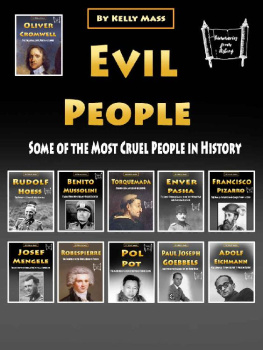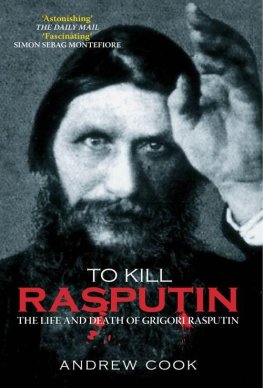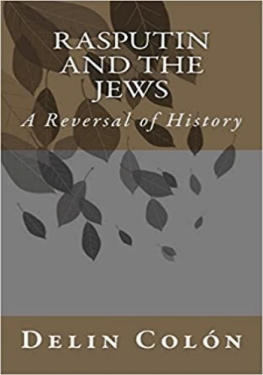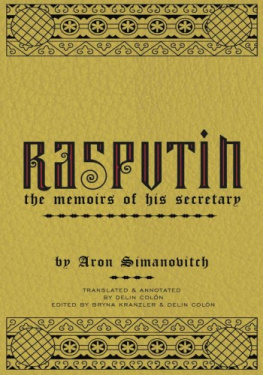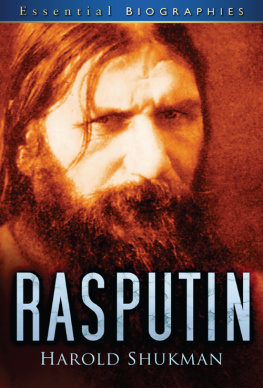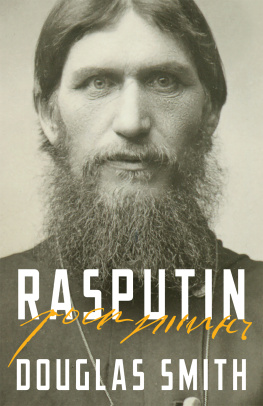Lets learn more about Grigori Rasputin in this book.
Rasputin started treating the royal couple's only child, Alexei, who struggled with hemophilia, in late 1906. He was a controversial character at court, considered as a mystic, visionary, and prophet by certain Russians and a spiritual charlatan by others. Rasputin's supremacy peaked in the year 1915, when Nicholas II left St. Petersburg to lead Russian warriors fighting in World War I, strengthening both Alexandra's and Rasputin's positions. Throughout the war, though, Russian beats increased, and both Rasputin and Alexandra grew significantly undesirable. Rasputin was killed by a gang of conservative nobles who opposed his impact over Alexandra and Nicholas in the morning of December thirtieth, in the year 1916.
Historians usually hypothesize that Rasputin's outrageous and threatening credibility added to the tsarist federal government's discrediting, and therefore to the Romanov dynasty's conquerings several weeks after he was killed. Rumor and report were often used to specify his life and influence.
Chapter 2: His Spiritual and Youth Life
Rasputin was born as a peasant in the Russian Empire's Tobolsk Governorate (now Tyumen Oblast), in the little town of Pokrovskoye, next to the Tura River. He was born on January the 21 st in the year 1869 and baptised the exact same day, according to main records. His name originates from St. Gregory of Nyssa, whose feast day is January 10th.
Rasputin's parents or caregivers are barely discussed in passing. Yefim , Rasputin's dad, was a peasant farmer and church senior who was born in Pokrovskoye in the year 1842 and wed Anna Parshukova, Rasputin's mom, in the year 1863. Yefim also functioned as a federal government carrier between Tobolsk and Tyumen, transferring people and freight. The couple had 7 more kids, all of whom passed away in infancy or early youth; a ninth kid, Feodosiya, could have been born. Rasputin was undoubtedly near Feodosiya and was godfather to her kids, according to historiographer Joseph T. Fuhrmann, but "the records that have stayed don't allow us to say more than that."
Rasputin's youth and early adulthood are "a great void about which we know definitely nothing," according to historical analyst Douglas Smith, yet the lack of credible sources and info didn't stop others from creating legends about his parents or caregivers and youth after Rasputin's rise to appeal.
Rasputin, like most Siberian peasants, including his mom and dad, wasn't officially informed and stayed illiterate long into his early adulthood, according to historians.
Regional archival files show that he had a rough youth, most likely including drinking, little thefts, and ridicule for regional authority, but there's no indicator that he was charged with taking horses, blasphemy, or bearing incorrect witness as a boy.
Rasputin transferred to Abalak, Russia, in the year 1886, 250 kilometers east-northeast of Tyumen and 2,800 kilometers east of Moscow, where he met Praskovya Dubrovina, a peasant girl. They wed in the month of February 1887, after a prolonged passion. Throughout Rasputin's later journeys and rise to prestige, Praskovya remained in Pokrovskoye and stayed devoted to him till his death. Only 3 of the couple's 7 kids lived to adulthood: Dmitry (in the year1895), Maria (in the year1898), and Varvara (in the year1899). (in the year1900).
Conversion to a New Faith
Rasputin revived his interest in faith in the year 1897 and triggered on a journey from Pokrovskoye. Rasputin could have left the area to stay away from penalty for his role in horse theft, according to some reports. Other sources declare he saw a vision of the Virgin Mary or St. Simeon of Verkhoturye, while others declare Rasputin's expedition was triggered by Melity Zaborovsky, a young doctrinal student. Rasputin, for whatever reason, deserted his former life: he was twenty-eight years of age, wed for ten years, and the dad of an infant child and another en route. His choice "could only have been triggered by some kind of psychological or spiritual crisis," according to Douglas Smith.
Rasputin had made earlier, much shorter expeditions to Abalak's Holy Znamensky Abbey and Tobolsk's cathedral, but his journey to Verkhoturye's St. Nicholas Abbey in the year 1897 changed him forever and ever.
There, he experienced Makary, a starets (senior), and was "exceptionally humbled" by him. Rasputin could have spent some months in Verkhoturye, and it is possible that this is where he learned to read and write, though he later grumbled about the abbey, declaring that some of the monks were homosexuals and slamming monastic life as being too overbearing. He went back to Pokrovskoye a much different guy, disheveled and acting oddly. He ended up being a vegetarian, avoided alcohol, and prayed and sung far more strongly than before.
Rasputin spent the years after that as a strannik (holy wanderer or pilgrim), leaving Pokrovskoye for months and even years at a period to travel across Russia and go to different holy areas.
In the year 1900, he might have taken a trip as far as Mount Athos, the center of Eastern Orthodox monastic life.
When Rasputin lived at Pokrovskoye in the early 1900s, he had a little group of followers, primarily relatives and other regional peasants, who worshipped with him on Sundays and other holy days. The gang had secret prayer conferences in Efim's root cellar, where they built a short-term chapel (Rasputin was still living in his dad's home at the time). The town priest and other peasants saw these events with skepticism and contempt. Rasputin was reported to have signed up with the Khlysty, a spiritual sect whose happy routines included self-flagellation and sexual orgies. It was also reported that female followers were ceremonially cleaning him before each meeting, that the group sang weird tunes, and that Rasputin had signed up with the Khlysty, a spiritual sect whose thrilled routines included self-flagellation and sexual orgies.
Still, "repeated evaluations couldn't show that Rasputin was ever a member of the sect," according to historiographer Joseph Fuhrmann, and claims that he was a Khlyst appear unwarranted.
Chapter 3: Rising
At the time of the early 1900s, word of Rasputin's activity and charm started to spread out during Siberia. He took a trip to Kazan in the year 1904 or 1905, where he developed a track record as a sensible starets, or holy man, who could help people solve their spiritual crises and issues. In spite of reports that Rasputin was making love with female followers, he made a very good impression on the dad remarkable of the 7 Lakes Abbey outside Kazan, and also regional church authorities Archimandrite Andrei and Bishop Chrysthanos, who gave him a recommendation letter to Bishop Sergei, the rector of the Alexander Nevsky Abbey's St. Petersburg Theological Academy, and scheduled him to travel to St.


